Different House Spiders and How to Keep Them Away
Different House Spiders and How to Keep Them Away
House Spiders
House spiders are the most common spiders found in peoples living areas. They are usually a yellowish brown with a dirty white abdomen and range from 3.8 to 6 mm long. These pests love hanging around areas that are low in traffic such as high corners, closets, and garages, and produce a large amount of webbing. During a female spiders life, she has the ability to produce up to roughly 380 eggs. With the potential of having these many spiders roaming around your home, it’s very important that you take care of an infestation right away. 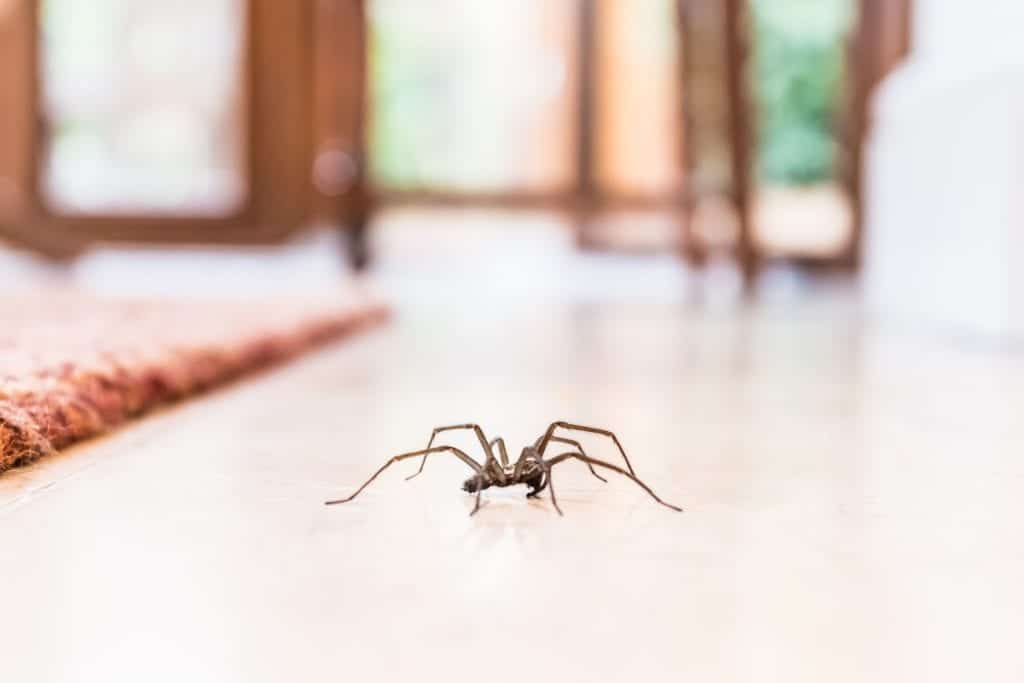
Daddy Long Legs
There are actually two spiders that tend to be referred to as daddy-longlegs: Opiliones and Pholcidae. Opiliones are the actual daddy-longlegs and do not in fact have venom glands. Furthermore, they do have the ability to bite through human skin but are extremely reclusive, hiding under rocks, in wood piles, etc. which means that it is actually rather unlikely that people often run into these spiders. Pholcidae’s on the other hand are more common and are referred to as “daddy-longleg spiders.” While these arachnids are known for having short fangs, this does not mean that they cannot penetrate human flesh. However, there are no recorded cases of a daddy-longleg spider biting a human with devastating effects. They do have venom, but the severity and potency of the venom has not been tested on mammalian beings and therefore has an unknown effect. 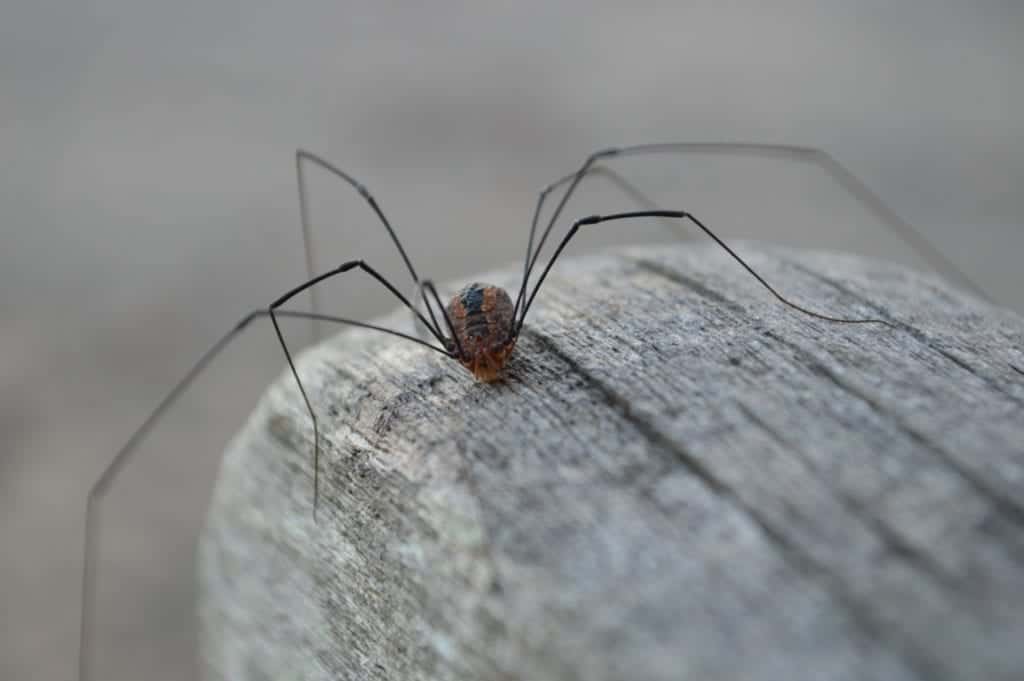
Brown Recluse
The name Brown Recluse came from the spiders’ tendency to be shy and reclusive. They usually hide out in areas that are dark such as the corners, under furniture and in closets. These spiders have six eyes within three different pairs. They are about a quarter in size and range from light brown to brown. Brown recluses can live up to six months without consuming any food or water. They are not out to harm anyone but will bite if they feel harmed. A bite by this type of spider is one you should take extremely seriously because they are poisonous. The bites are very painful and originally develop into a blister before eventually splitting into a lesion and, in severe cases, can cause skin necrosis – destruction of the skin tissue. In particularly serious situations, the afflicted area can turn septic and even become fatal. 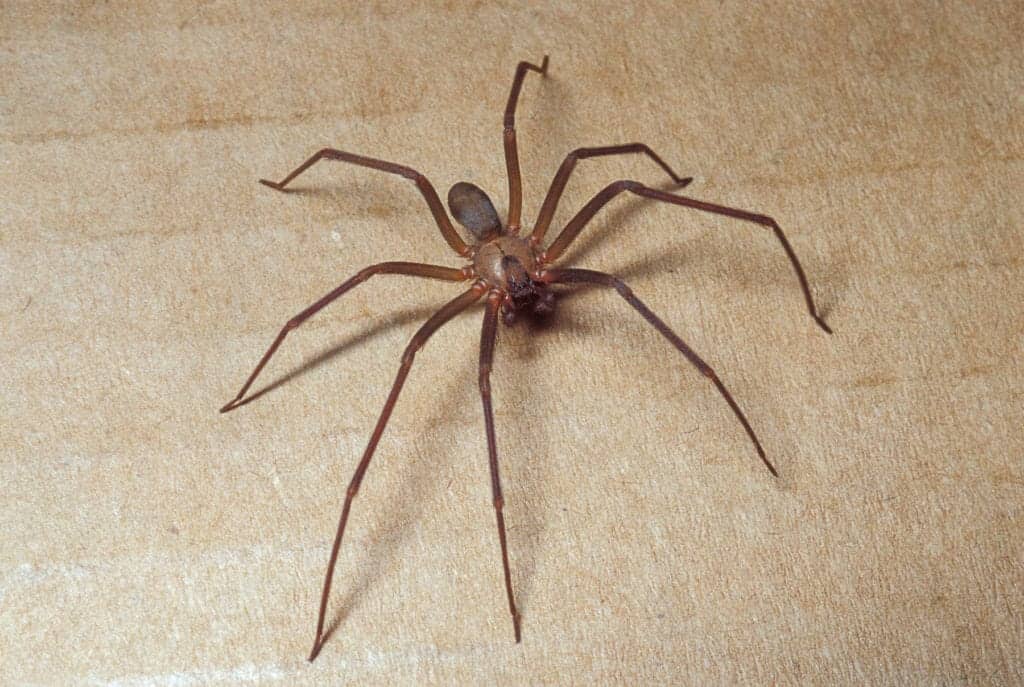
Black Widows
Black widows are dangerous, carnivorous arachnids. They can be found in various areas throughout the United States and like to find dark, semi-sheltered areas to spin their webs. Out of their spider family, the Theridiidae, the black widow is the largest averaging 3-4mm in length for males and 8-10mm for females. Their average lifespan is roughly 1 year, however some spiders cared for in captivity can survive up to 3 or 4 years. Black widows are nocturnal and solitary creatures with very potent venom. Their strong fangs are easily able to stab through human skin to inject the venom which contains a powerful neurotoxin that will begin radiating pain in the location of the wound before spreading to the chest, other limbs, abdomen or even the entire body. Depending on the amount of venom released, and the health of the individual bitten, these bites can cause extreme health complications and even death.
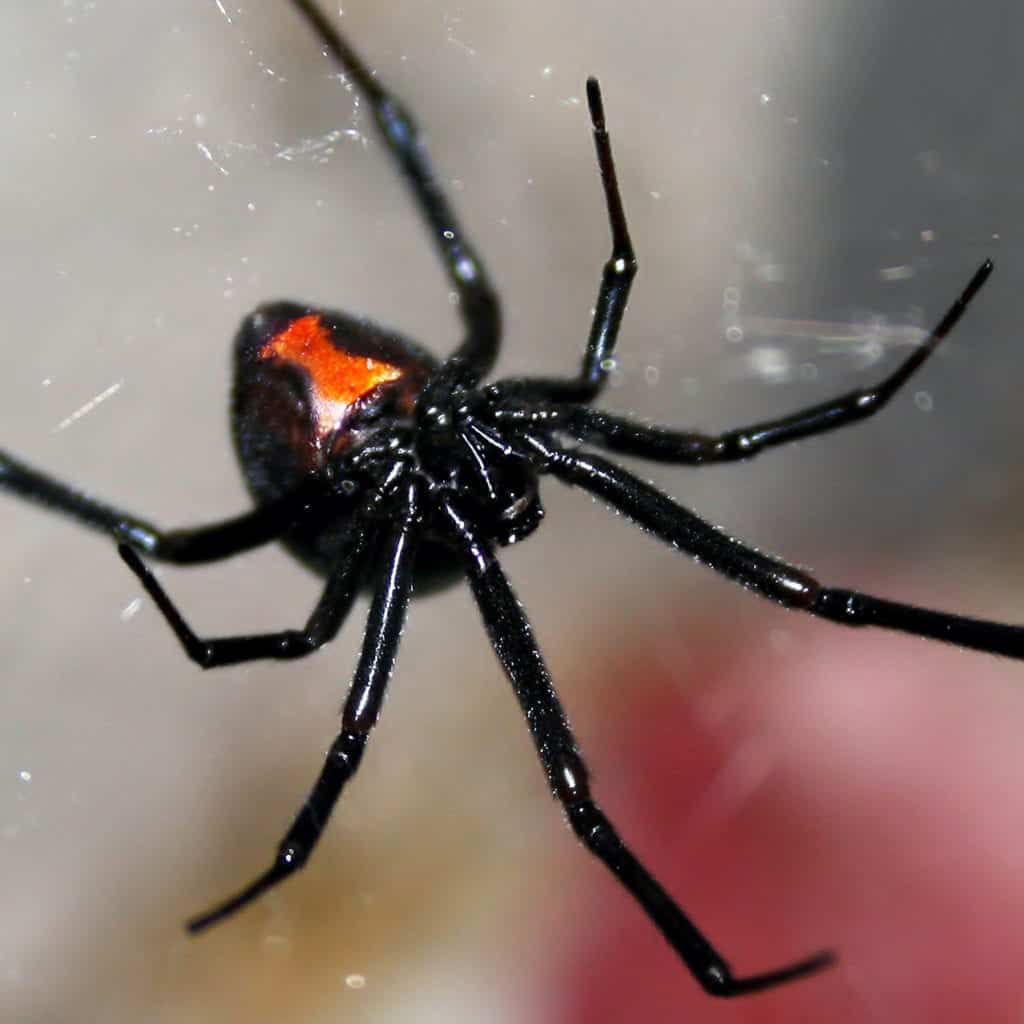
A female black widow spider (Latrodectus), hanging upside-down in her web, showing the red hourglass marking.
Wolf Spiders
Wolf spiders are hairy arachnids about 1/2-1 inch long and brownish/gray in color. They get their name for their tendency to remain on the ground and hunt at night. One of the main differences between this spider and others is that wolf spiders don’t make webs to prey on insects. Rather, they stalk and attack their prey in a hunting fashion. Wolf spiders prefer their solitude, are quick on their feet, and do not have lethal bites though their bites can be very painful. We suggest you seek medical attention if you know a wolf spider bit you. 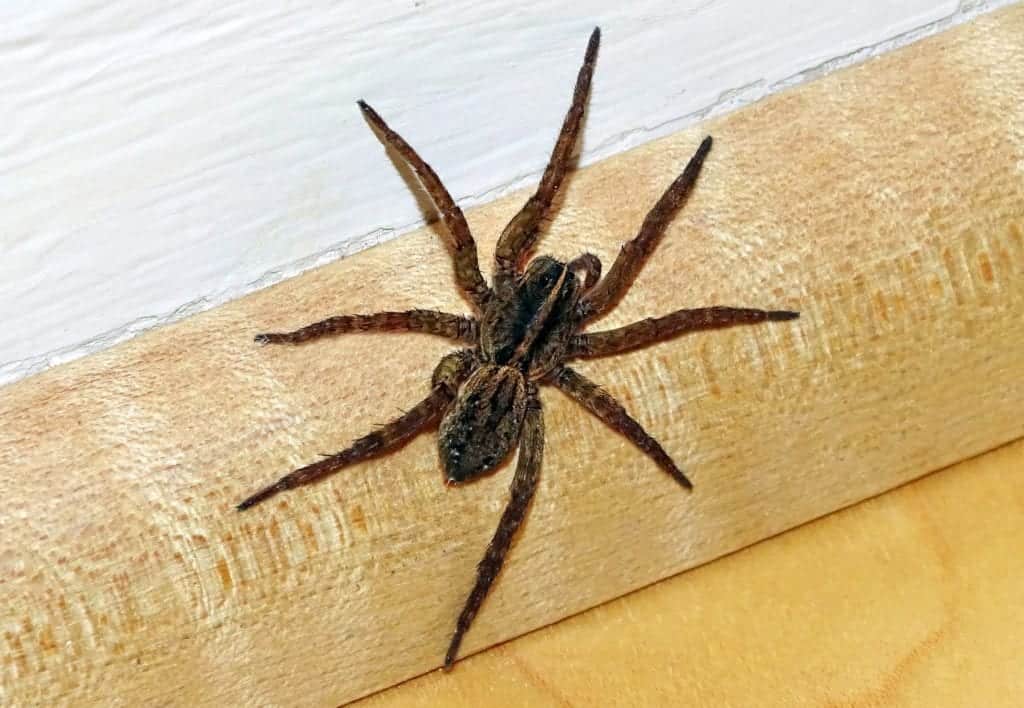
Keeping Spiders at Bay
Spider control is a very serious concern, especially in the case of venomous spiders. The best way to avoid getting bit by spiders is by preventing a spider infestation in the first place. A few steps you can take to help avoid these creepy arachnids include:
- Sealing any cracks or crevices leading into your home
- Securing and repairing any torn window or door screens
- Ensure there are no gaps under doors and install door sweeps if there is to seal off the entry point
- Inspect firewood before bringing it into your home
- Use a dehumidifier in areas of high moisture (ie. basements, cellars, etc.)
- Take down any webs upon first discovery
- Trim bushes, trees, etc. back from the home so they cannot be used to access the home
But, if all else fails, and you find that your home has unwelcome venomous visitors, we recommend that you call in the professionals right away. Dealing with these types of arachnids can be dangerous and should only be handled by trained technicians with experience with these types of pests so that the issue can be treated quickly and effectively. Call us today if you suspect you may have an arachnid issue in your home. 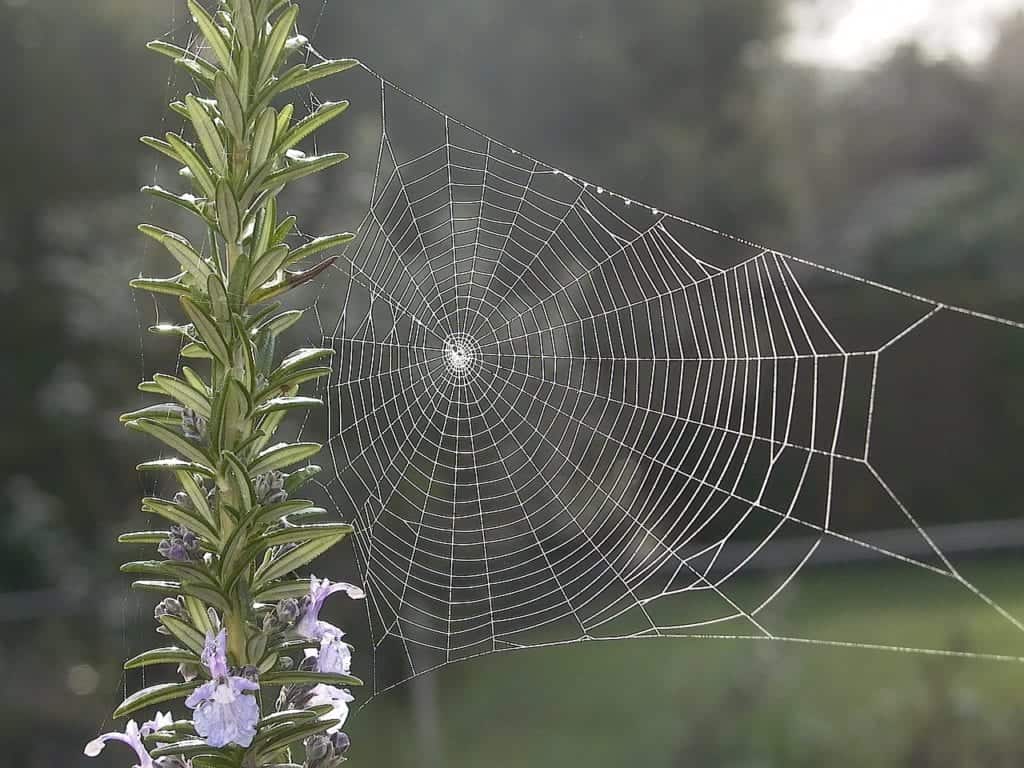
Citations
Daddy Long Legs (N/A) University of California Riverside. Department of Entomology. Available at: https://spiders.ucr.edu/daddy-long-legs (Accessed: May 2020). Mehta, F. (2018) What Happens After a Black Widow Spider Bite?, Medical News Today. Medically Reviewed by G. Whitoworth. Available at: https://www.medicalnewstoday.com/articles/313647(Accessed: April 2020). McCorkle , M. (2002) Latrodectus Mactans, Animal Diversity Web. Edited by K. Yurewicz. The University of Michigan. Available at: https://animaldiversity.org/accounts/Latrodectus_mactans/ (Accessed: September 2020). Solly, M. (2019) Male Black Widow Spiders Find Potential Mates By Following Other Suitors’ Trails, Smithsonian Magazine. Available at: https://www.smithsonianmag.com/smart-news/male-black-widow-spiders-find-potential-mates-following-other-suitors-trails-180972786/ (Accessed: September 2020). Venomous Spiders (2018) Centers for Disease Control and Prevention. The National Institute for Occupational Safety and Health. Available at: https://www.cdc.gov/niosh/topics/spiders/default.html (Accessed: April 2020).
Request a Free Quote Today
(We do not share your data with anybody, and only use it for its intended purpose)


